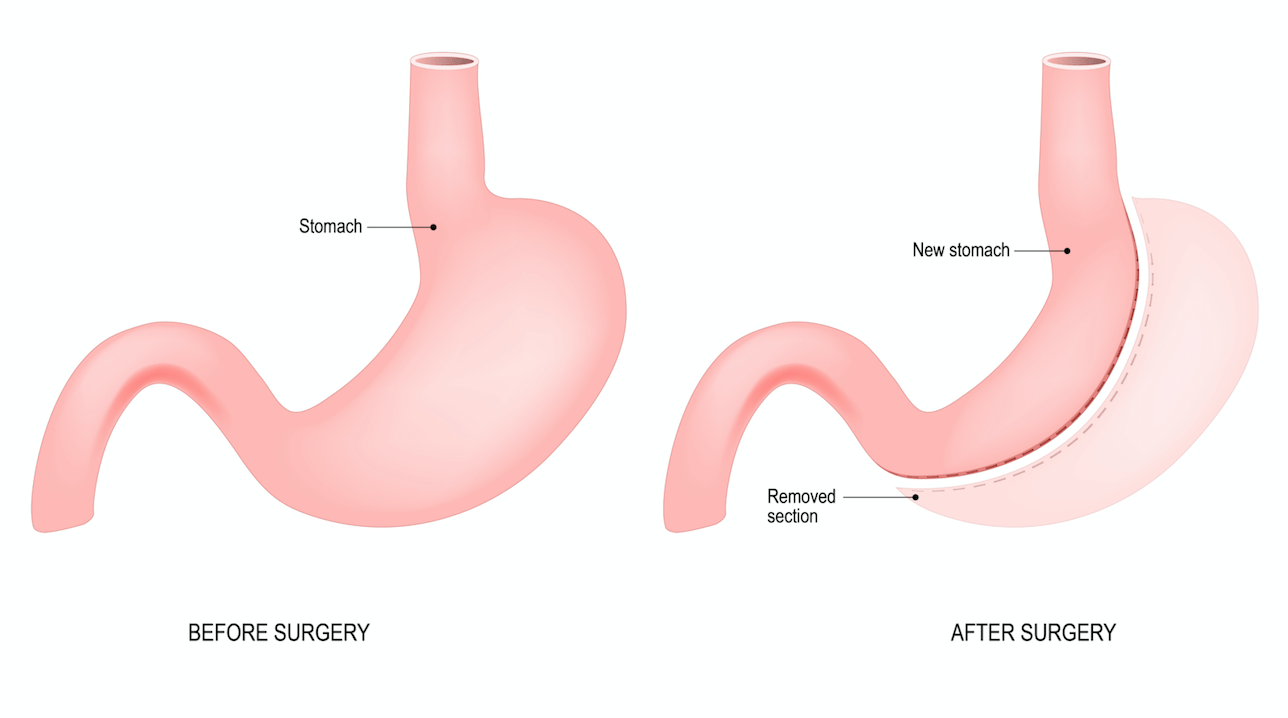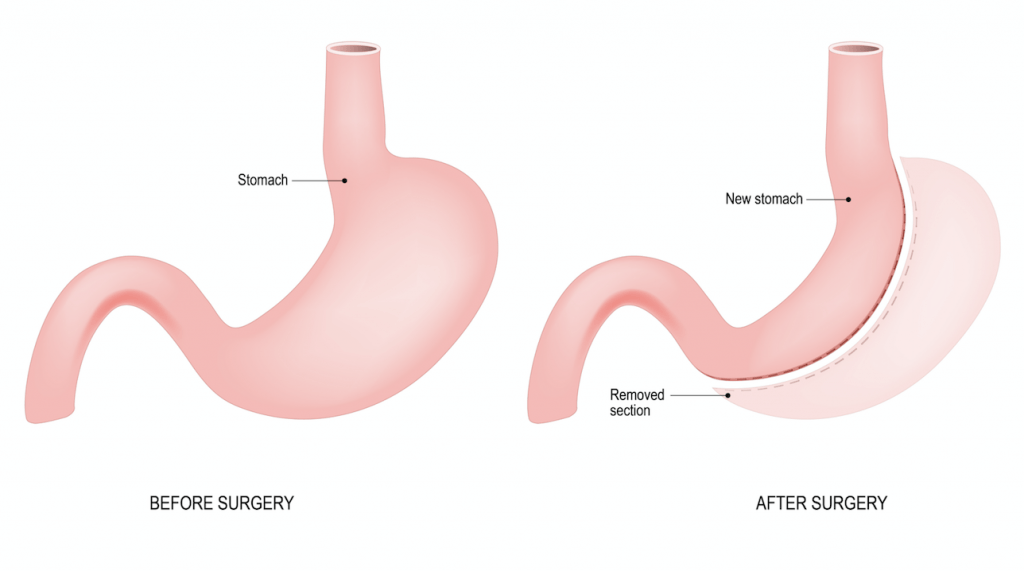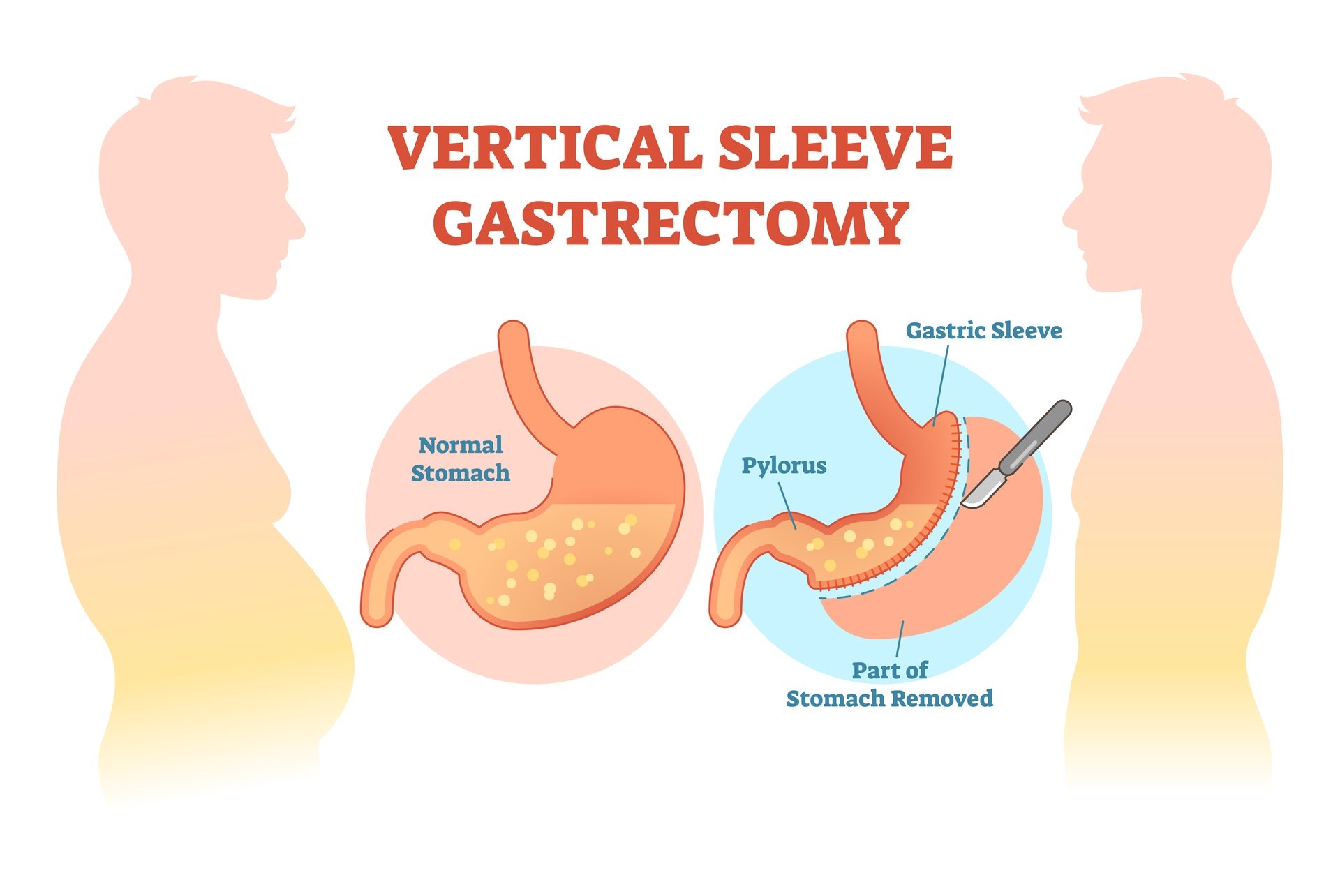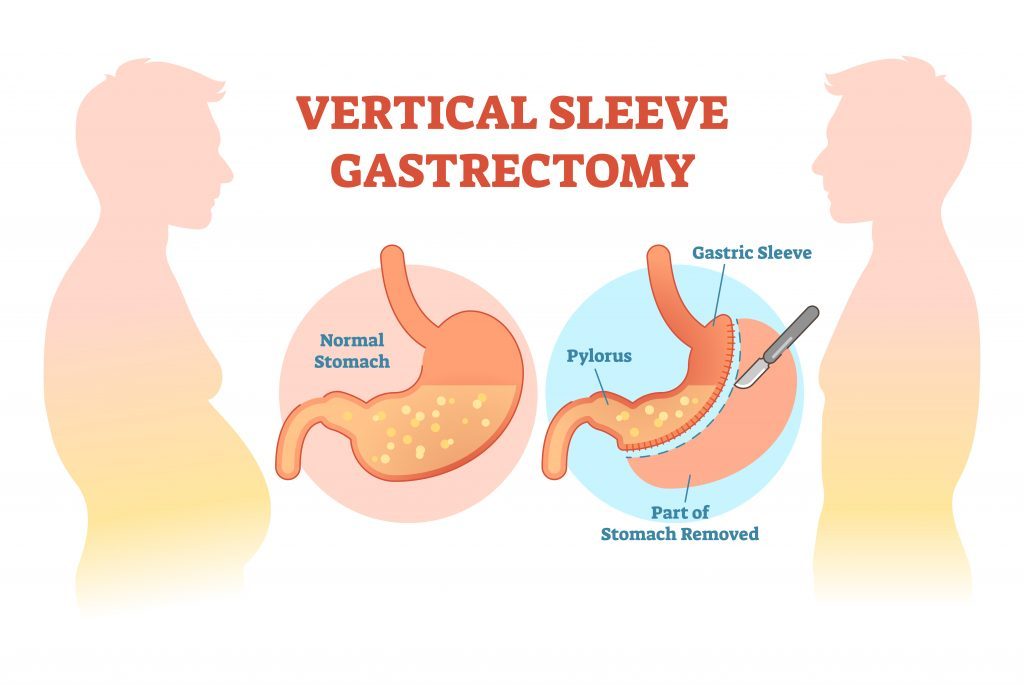

Making New Year’s resolutions gets a bad reputation. Some people make them, but many people don’t follow through for more than a few weeks at best. But we love the idea of making new commitments or renewing commitments as we embark on a brand new year: new beginnings, blank slates, a fresh start, and all that.
We see many patients who need to make resolutions not just to lose weight, but to start living a healthier lifestyle. A healthier lifestyle will likely involve weight loss, and there’s nothing wrong with that. But there’s more to the story.
In this blog post, we will focus on some of the reasons why it is important to make resolutions for weight loss and a healthier lifestyle, while also focusing on one really great option to help achieve this: gastric sleeve surgery.
Why focus on wellness more than weight & how to do it
Focusing just on weight loss can lead to a cycle of losing and regaining weight, low self-esteem, and too much time spent thinking about food and body image. We don’t want this for anyone. This is why focusing on overall health is often a much better mindset. What happens, though, is that focusing on health in general typically does lead to weight loss.
What can you change on a daily basis? Are you totally inactive now? Do you eat fast food every day? In both of those situations, starting with small daily changes can go a long way. Go for a 10-minute walk every single day, then slowly start working up to longer times. Resolve to cut out fast food one day at a time until you are eating out much less frequently. Taking it one day at a time often feels more doable, rather than looking at things on a larger scale by the week, month, or even year.
For those who are already on their journey to a healthier life, including those who have already had weight loss surgery, it may be harder to find achievable goals. Maybe you typically skip breakfast, but then feel awful by lunchtime and overeat. Set a goal of eating a healthy breakfast every day. Or maybe you know fish is a healthy option on your diet plan, but you don’t cook it very often. Resolve to learn a few new recipes and cook fish at least once a week. If your fruit or veggie intake is a little low, make it a goal to eat at least one of each with every single meal.
If you have serious health issues, such as hypertension or high cholesterol, we suggest focusing on improving those conditions rather than just losing weight. Again, you likely will lose weight in the process, but the shift in mindset can be a game-changer.
Ideas for wellness & weight loss resolutions
- Establish or improve your workout routine. If you are currently overweight or obese, you have to start somewhere. If you are interested in weight loss surgery, a daily workout routine is part of the plan we will work with you on. For those who have had weight loss surgery, remember that there’s still work to be done to maintain a healthy weight, and a big part of that is exercising. Even if you struggle with joint or knee pain, use the New Year as an opportunity to discover the endless ways to get in a low-impact workout, or it may be time to find a new, exciting routine that you will look forward to more.
- Focus on eating proper portion sizes and nutrient-dense foods. This is important for those who are preparing for weight loss surgery and those who have already had it. It’s essential to keep portion sizes smaller and loaded with nutrient-packed foods. Since you’re eating less than you used to, it’s crucial to ensure you’re getting as many nutrients as possible.
- Consider getting involved in a support group. The new year may be the perfect time to join a support group. We’ve seen this be a huge motivator and predictor of long-term weight loss with our patients, and that’s why we encourage everyone to get the support they need. Whether through a Facebook support group or other online or in-person groups, there are plenty of options when it comes to finding one you enjoy being a part of.
- Share your story. As you are on your journey to better health, or once you feel like to have gotten there, consider sharing your story. This may mean you share with only close family and friends, or this may mean you share it more publicly, like on our testimonial page. It can help keep you accountable, but it can also be a huge encouragement to others.
- Be proud of yourself. Even when daily changes seem small, they are a big deal. When you do achieve your goals, no matter what they are, let yourself be proud. You ate breakfast today; you had fruits and veggies with every meal; you went for a 20-minute walk. Those successes are awesome, and you may find that the more small achievements you have, the more you will want to keep going. It’s this day in and day out commitment that will help you achieve the overall goal of getting healthy.
Gastric sleeve surgery — one really great option
Sleeve gastrectomy, also known as gastric sleeve surgery, is the most frequently performed bariatric procedure in the U.S. You may be a candidate for this procedure if your body mass index (BMI) is greater than or equal to 40 or between 30 and 40 with other medical problems, such as diabetes, sleep apnea, heart disease, and high blood pressure. The procedure, along with lifestyle modifications such as the right proportion of healthy food and exercises, can help improve your overall health and quality of life.
The surgery reduces the size and volume of your stomach to limit food intake and calorie absorption. The surgery results in a stomach that functions normally, enabling you to eat most foods, just in smaller amounts.
After losing a substantial amount of weight, most of our patients experience improvement in their overall health. When you combine weight loss surgery with other lifestyle changes, including the small daily ones, the results can be incredible.
We always encourage you to set attainable goals that you can accomplish with a positive attitude and wholehearted commitment. Losing weight and/or maintaining a healthy weight is something to be proud of, and 2020 is a fresh start to continue doing just that.
Contact Us to Learn More About Gastric Bypass Surgery
Birmingham Minimally Invasive Surgery is a caring group of professionals who specialize in all types of bariatric surgery. Our surgeon Dr. Jay Long has highly specialized training in bariatric surgery, having completed a fellowship in minimally invasive and bariatric surgery at The Methodist Hospital in Houston, Texas, where he focused on taking care of patients that are morbidly obese. And we are so proud of our pricing that we publish the costs right on the front page of our website! Insurance won’t pay? We have a variety of financing options we can offer you so that you are able to get the healthy body you’ve wanted for years. Visit us today at http://www.bmisurgery.com/ or give us a call to set up a consultation at 205-833-6907.












